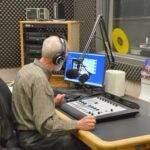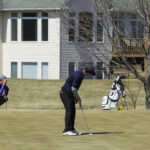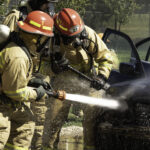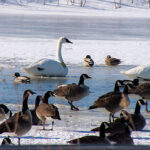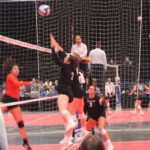First Amendment Rights have been a hot button issue in Iowa as of late, now colleges are clarifying what it means on campuses.
According to Kirkwood’s Student Handbook and Kirkwood Board Policy 103, Kirkwood is dedicated to the free transmission of ideas and intellectual freedom. This translates to a broad freedom of speech and expression policy for the college.
“The primary function of an institution of higher education is the discovery, improvement, transmission and dissemination of knowledge by means of research, teaching, discussion and debate. To fulfill this function, the institution must strive to ensure the fullest degree of intellectual freedom and free expression allowed under the First Amendment to the Constitution of the United States,” reads the student handbook.
Contrary to popular belief it is not the college’s place to regulate protected speech, as long as the speech falls under the protected category it is protected by the college and its policies.
“It is not the proper role of an institution of higher education to shield individuals from speech protected by the First Amendment to the Constitution of the United States, which may include ideas and opinions the individual finds unwelcome, disagreeable or even offensive,” states the Kirkwood Student handbook and Board Policy 103.
This policy also covers assembly on campus, stating that the campus is a public forum open to any speakers at a reasonable time, place and manner with restrictions guided by First Amendment principles.
This, however, only applies to outdoor areas that include grassy areas, sidewalks, parking lots, walk ways or other common areas. It does not apply to places like health care facilities, veterinary medicine facilities, where livestock are kept, where business operations occur and Kirkwood athletic facilities.
“Students and faculty have the freedom to discuss any problem that presents itself, assemble and engage in spontaneous expressive activity on campus, within the bounds of established principles of the First Amendment to the Constitution of the United States, and subject to reasonable time, place, and manner restrictions that are consistent with established First Amendment principles,” states the policy.
Protected activities only apply to members of the campus community which includes students, administrators, faculty, staff, and/or guests invited by the aforementioned groups.
According to Board Policy 103, Protected groups are freely permitted to engage in noncommercial expressive activity in outdoor areas on campus, subject to normal restrictions regarding time, place, and manner put forward by present case law.
This must not impede others ability to access a facility or walkway or disrupt the functioning of the college.
Kirkwood may designate other areas of campus available for use by the campus community. All access to designated areas will be granted on a viewpoint-neutral basis.
Noncommercial expressive activities include but are not limited to:
- Lawful oral or written communication
- Forms of peaceful assembly
- Protests
- Speeches by invited speakers
- Distribution of literature
- Circulating petitions
- Publishing or streaming on an internet site
- Audio or video recorded on campus (in outdoor areas specified above)
According to the policy it also protects counter-protests, or counter-assemblies on campus. As long as it is not unlawful or substantially limits the free expression of others.
When the code refers to unlawful communication it typically refers to hate speech, threats of violence, harassment, defamation or slander (saying something purposefully untruthful to damage a persons reputation), obscenity or inciting violence.
If a faculty member is to have knowingly restricted free speech they will be penalized under the student conduct code.
In all instances staff and faculty may support a student’s right to freedom of expression.
Non protected activities include, but are not limited to, a threat of serious harm and expression directed or likely directed to provoke imminent unlawful actions; and harassment, including but not limited to, expression which is so severe or pervasive and subjectively and objectively offensive that the expression unreasonably interferes with an individual’s access to educational opportunities or benefits provided by this Community College; violence; defamation, including libel and slander; obscenity; inciting others to commit crimes or engage in unlawful conduct; or disruption to the normal operations of the college.

Categories: Campus News, News


